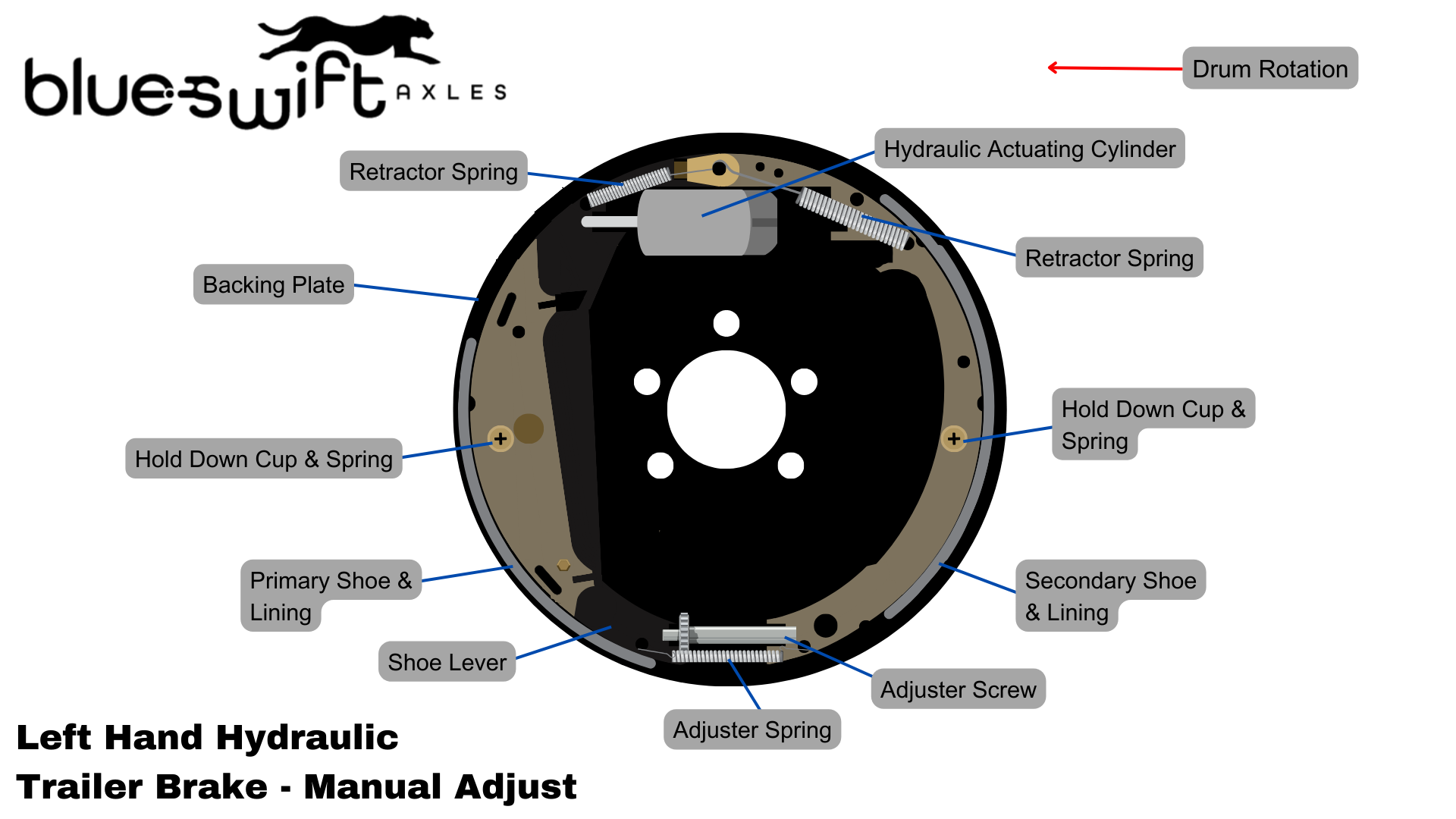This article answers the popular question: What are hydraulic surge brakes and how do they work?
Hydraulic Surge Brakes, also known as surge brakes, are a type of trailer brake that is extremely common in boat trailers and leisure trailers. Surge brakes activate automatically whenever the driver slows the tow vehicle, making them a convenient and reliable option for your trailer.
How do hydraulic surge brakes work?
The neck of a trailer is composed of two pieces – the front side and the back half of the trailer neck. When the front neck is then pushed into the back, that rod pushes into the master cylinder and then the brakes are applied. These mechanical brakes slow a trailer down when you place your foot on the tow vehicle’s brake pedal. The surge brake system depends on the trailer’s momentum to activate the brakes. The more pressure on the tow vehicle’s brakes, the more pressure that is placed on the trailer’s brakes.
Pros of Surge Brakes
Easy to use & reliable – Surge brakes are the best trailer brake option when it comes to ease and versatility in the trailer braking world. Surge brakes activate automatically whenever the driver slows the tow vehicle. They are a reliable option because they have fewer parts that could potentially go bad over time.
Simple setup – Surge brakes are easy to implement and do not take a lot of wiring to set up.
Work in water – Unlike electric brakes, surge brakes work in water, which makes them an ideal option for boats or water sports trailers.
Cons of Surge Brakes
Backing up – A trailer with surge brakes needs a special pin to be backed up. The pin is placed in the neck so putting the trailer in reverse does not activate the surge brakes while a driver is backing up. The pin must be removed when the trailer is ready to travel again.
Swaying – The drawback of surge brakes is that if the trailer starts to sway, you may not be able to get the surge brakes to function correctly since they do not activate separately from the tow vehicle. To avoid swaying, be sure you have your trailer loaded correctly and enough weight on the tongue.
No breakaway feature – Electric brakes have a breakaway feature that hydraulic surge brakes don’t have. This breakaway feature slows and stops a trailer if it becomes disconnected from the tow vehicle hitch. Because of this, you may not be able to use surge brakes in many states, as certain states require that feature. Be sure to check your local Department of Transportation for your state’s rules.
Not great on downhills – Surge brakes can cause your tow vehicle’s brakes to overheat by constantly pressing up against your car and slowing the trailer down.
Are hydraulic surge trailer brakes right for you?
The answer to this question is not simple. Deciding between electric brakes or hydraulic surge brakes should depend on the type of trailer you’re hauling and your needs. Going downhill, the electric brakes are the better option, but for going into the water the surge brakes will be the best option.
Blueswift Axles offers 3,500, 5,200, 6,000, and 7,000 LB hydraulic brake kits. Visit our online store to view our hydraulic brake options and place your order for replacements today.
